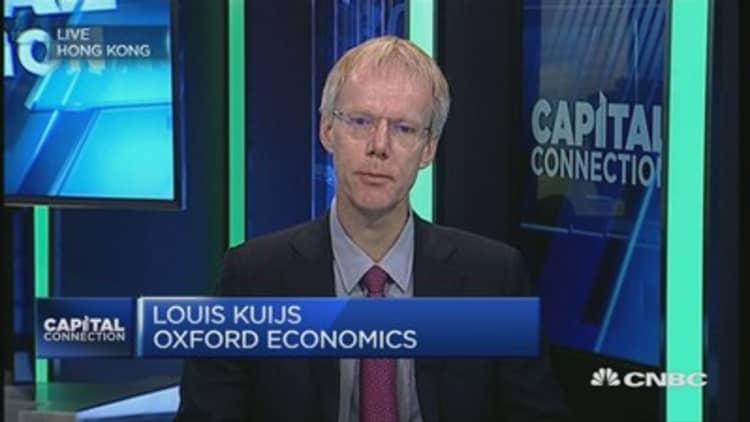The U.S. Treasury said on Friday that none of the United States' major trading partners is manipulating its currency to gain advantage for its exports, in contrast to Republican presidential candidate Donald Trump's threats to declare China a currency manipulator if he is elected.
In its 16th and final currency report under President Barack Obama, the Treasury said it added Switzerland to a foreign exchange "monitoring list" of countries with high external surpluses or currency market interventions.
It also kept China, Japan, Germany, South Korea and Taiwan on the list, first launched in April. But it said none of the six countries met the standard for enhanced scrutiny under a new trade enforcement law passed in 2015.
Treasury said that for the 12 months through June, it has "concluded that no major trading partner of the United States met the standard of manipulating the rate of exchange between its currency and the United States dollar for purposes of preventing effective balance of payments adjustments or gaining unfair competitive advantage in international trade."
Trump said in June that if elected, he would immediately "instruct my Treasury secretary to label China a currency manipulator, which should have been done years ago."
But based on the criteria for its currency monitoring list, Treasury said China's performance actually improved since the April report. It now meets only one of the three criteria, its $356 billion bilateral goods trade surplus with the United States.

China's current account surplus fell below the threshold of three percent of gross domestic product, and it has not been engaged in "persistent one-sided intervention" despite two yuan devaluations. In fact, Treasury said China has spent more than $570 billion worth of foreign exchange assets to keep the yuan from depreciating further in the year to August.
China could actually drop off the Treasury monitoring list next April if the current account surplus remains below the threshold and it is not found to be purchasing foreign exchange to halt a rise in the yuan.
Treasury said Germany, Japan and South Korea remained on the monitoring list because of material current account surpluses and significant bilateral trade surpluses with the United States. It said South Korea had intervened in foreign exchange markets both ways, to prevent the won from depreciating and later to limit its rise against the dollar.
Switzerland got on the list because of its trade growth with the United States in the past year, a large current account surplus and consistent purchases by the Swiss National Bank of foreign assets since it abandoned last year what was effectively a euro peg.
Treasury said Taiwan's current account surplus was well above its threshold and it had purchased about $1 billion a month during the 12 months through June to limit the Taiwan dollar's appreciation.

